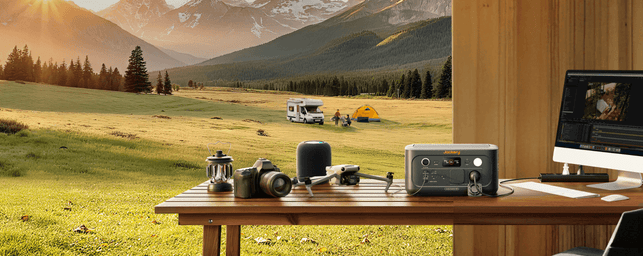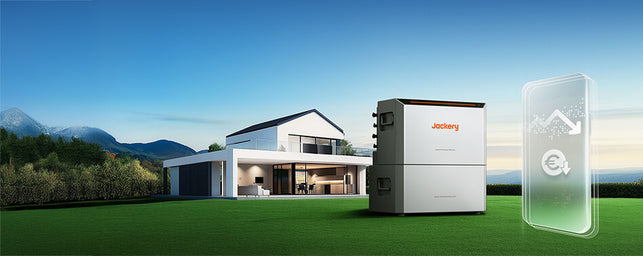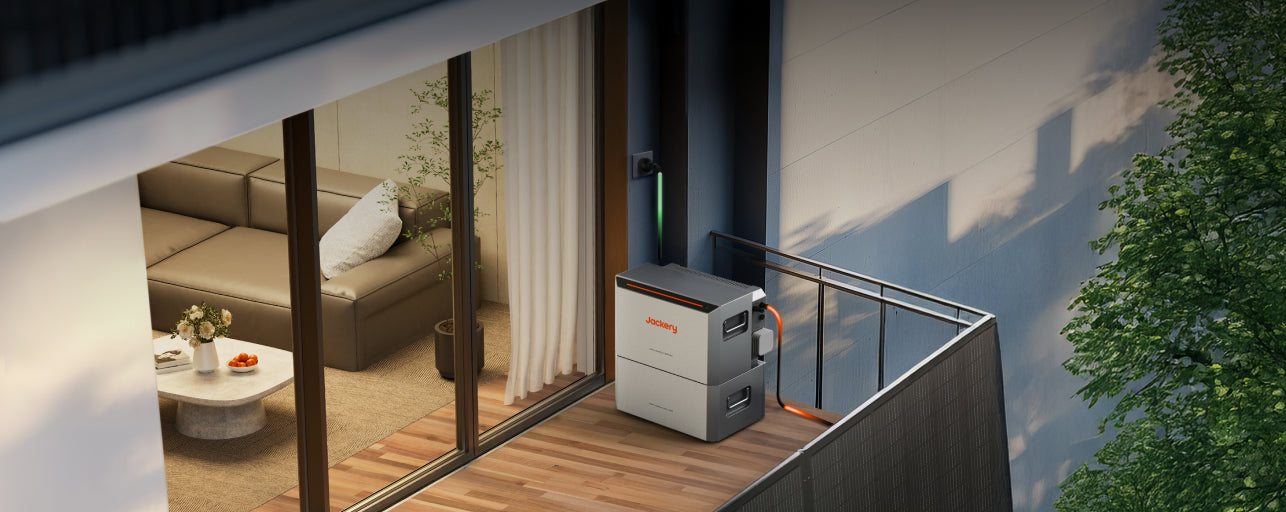Balconies are a vital part of European homes, providing an outdoor space to unwind and offering ample sunlight. However, one important concept that's quickly gaining popularity is balcony gardening.
You can grow your favourite food and flowers there and attract beneficial urban wildlife. It also enhances your overall well-being by allowing you to connect with nature.
So, if you are in Europe, whether living in a caravan or apartment, here are some tips on how to manage your balcony garden all year round.
Different Ways to Enhance Seasonal Awareness
Typically, the growth of your balcony garden when living in a caravan depends upon how well you adapt to changing weather conditions. Here's what you should do in this regard:
1. Sunlight
Start by observing how much sunlight your balcony receives. If it's south-facing, you get ample sun exposure, perfect for growing sun-loving plants like tomatoes, peppers, and more. But if the balcony garden is north-facing, you must invest in leafy greens or shade-tolerant flowers.
2. Temperature
Another thing you should pay attention to is the temperature of your balcony. Spring and summer promise good plant growth, while autumn provides a cool temperature more suitable for hardy herbs like parsley and chives. Winter can be quite harsh on your leafy buddies, so balcony gardening enthusiasts living in a caravan should consider covering them with fleece or bringing them inside.
3. Rain
Your plants rely on a continuous water supply from rain and self-watering for optimal growth and survival. Rain can be a saviour, especially during summer when plants are at a higher risk of drying out. However, make sure you've planters with saucers so your plants drain excess water and absorb only what's needed to prevent damage.
4. Wind
Many people get upper apartments in a building to enjoy the views around. However, higher balconies also face strong winds that can damage delicate flowers. That's why it's important to invest in sturdy pots and use railing screens to shield them against strong winds. If you have herbs like rosemary or thyme, they can handle wind well, but tender plants need extra protection.
Understand Spring: The Season of Growth and New Beginnings
Spring is the time for natural renewal. It brings increasing temperatures and longer daylight hours compared to winter, which results in healthy plant germination and growth.
Ideal Choices
You should focus on growing sowing herbs, leafy greens, and flowers during this season. Some suggestions that you should explore include:
If you want to add a greenish touch to your balcony garden while living in a caravan, growing basil is a good idea. It's a natural component packed with many health-boosting essential oils that offer excellent antimicrobial and anti-inflammatory properties. Garnishing it on your food can also provide you with a good iron supply.
Parsley is a biannual plant that grows in the second year and has found numerous applications in food. For instance, add them to your pizza or pasta sauces to give them an organic taste and appearance. They thrive in spring, but you should plant them in early spring so the plant experiences maximum growth during the warm season.
Leafy greens include edible plants like kale, spinach, lettuce, and chard, rich in vitamins, minerals, and fibres. They grow smoothly in spring on your balconies when living in a caravan, so you have a fresh and continuous supply of this produce throughout. You can either cook them in spices or eat them raw as salad to maintain a healthy lifestyle.
If you are looking for some of the easiest plants to grow in your balcony garden, pansies and marigolds are the best choices. They thrive in hot, dry conditions and adapt well to changes in heat and humidity. You can grow them to create a mesmerising outdoor space without requiring extensive care.
Important Tasks
Here are some important tasks that you should perform to ensure your plants grow the best:
- Soil Refresh: Over a certain period, soil becomes compact, making it difficult for plants to access food and water. Spring is the time for soil refresh, where you change the soil or re-compost it. The goal is to replenish nutrients and provide a healthy soil microbiome.
- Composting: During this season, consider composting your plants, as heat naturally accelerates the breakdown of organic waste. The desired nutrients are available sooner, offering you a reliable source for fertilising and mulching.
- Re-potting: When living in a caravan, you should pick a cooler part of the day and ensure the plant on your balcony is properly hydrated. Take it out carefully and place it in a much larger pot for active growth.
- Adding New Containers: Add new containers to your balcony garden to expand your plant collection. You can either use vertical racks and railing planters if you are short on space, a common occurrence when living in a caravan.
Tips to Follow
Now that you've grown your favourite plants and flowers in your garden, the following tips will help you optimise their growth:
- Maximise Light Exposure: Since sunlight in spring isn't that harsh, you should provide your green buddies with maximum light. For that, taller plants should be placed on the north side and shorter plants on the south side.
- Fertilise Gently: As the soil starts warming in spring, you should gently fertilise it evenly. This will increase nutrient uptake, which is not possible with cold soil.
- Watch for Early Pests: As the temperature increases, pests become active, attacking your beloved plants. So, keep an eye on aphids and other insects and address infestations before they become a nuisance.
Understand Summer: Peak Productivity and Heat Management
Have you ever wondered why plants grow way faster in summer? This season provides long sunlight hours, so plants have more time to photosynthesize, making their own fuel. And just like humans, the more they are fed, the more they grow.
Ideal for
In summer, you should grow plants that thrive in temperatures up to 90°F to 96°F. But they must be well hydrated and cared for. Here are some summer-friendly fellows you can grow on your balcony when living in a caravan:
Fruiting plants like tomatoes, peppers, and cucumbers truly shine when the air and soil temperatures are high. Having a bountiful harvest of these at home ensures you don't have to get them during grocery shopping. The health benefits they offer include improved heart health, reduced risk of cancer, and better digestive function.
It's also a good idea to grow herbs in your garden when living in a caravan. They add colour to your space while also deterring potential pests. Some good options that you can consider include thyme and mint.
If you want some colourful plants to attract pollinators, you should opt for Pentas, Tall Phlox, Hibiscus, and Coreopsis. You may also go with sunflowers, petunias, and lantanas to make your garden fragrant and visually appealing.
Tasks
While summer promises excellent plant growth for off-grid caravan balconies, it's only possible when you do the following things:
- Daily Watering: It's a good idea to water plants twice a day, but the frequency varies depending on the specific species. We suggest inserting your fingers two inches deep in the soil, and if it feels dry, the green fellows need watering.
- Heat Management: Excessive heat can damage the plants rather than support them. To manage heat, use screens to provide shade, water more frequently, and apply a 4- to 6-inch mulch layer.
- Pest Prevention: Use organic methods, such as neem oil and insecticidal soap, or physically remove pests when you first notice them.
- Frequent Pruning: Prune plants in summer more often to control size, promote better flowering, and protect them from fungal infections. Take a plant scissors and cut back new lush growth to encourage fruit production.
However, when off-grid living, you might come across this one question: how do you live off the grid and manage plant growth? That's where Jackery’s solar generators come in! They utilise the sun's energy, which is clean and readily available, powering essential systems that plants need for their growth. Which solar-powered generator option to go with? Here's the best pick:
Using Jackery Solar Generator 1000 v2
The Jackery Solar Generator 1000 v2 offers a massive 1070 Wh battery capacity and 1500 power output that can run most critical gardening equipment. For instance, you can use it to power automatic watering plants and mini fans to maintain good ventilation, especially if you have an enclosed balcony when living in a caravan.
You can also use USB-powered misting plants to prevent overheating while also powering lighting equipment and essential household devices. It's 18% smaller than the older version and operates at ≤ 22dB to maintain a peaceful environment. Charging it is a breeze; use the Emergency Super Charging and have it full within an hour.
Tips: During summer, your solar panels for caravans receive plenty of sunlight. You must use it to the maximum to avoid relying on traditional electricity and lower your energy bills.
Understand Autumn: Transition and Harvest
Autumn is the preparatory season where you focus on root establishment, harvest, and winter protection. You can still grow perennials and other flowers during this time, as the soil is warm. Let's discuss the autumn to-do list in detail:
Ideal for
If you have been wanting to grow rosemary and other greens, such as spinach and kale, autumn is the perfect time.
Hardy Herbs (Rosemary, Thyme)
Rosemary and thyme are hardy, cold-tolerant herbs that need a well-drained soil to develop their roots before winter. These herbs are beneficial for enhancing memory, alleviating muscle pain, and strengthening the immune system.
Spinach, Kale, and Chrysanthemums
Spinach, Kale, and Chrysanthemums grow in autumn because they are favoured by cool and short days. Even the flavour gets better after the frost. You can incorporate them into your diet to get antioxidants, vitamins, and other medical benefits.
Tasks
As autumn arrives, you should start preparing your garden for winter if you live in a caravan. This involves proper harvesting and composting of spent plants. Here's an overview:
- Harvesting: Gardeners often harvest in autumn to gather their mature crops of carrots or broccoli before winter, thereby preventing them from frost damage. You should use a sharp knife or pruner to make clear cuts and avoid yanking or pulling.
- Saving Seeds: To make balcony gardening cost-effective when living in a caravan, you should tend to save seeds. Check the weather forecast and, on a dry day, harvest. Take them indoors, then place them on a paper for further drying before removing them from their casings. Store the seeds in labelled envelopes and airtight jars and use them for plant growth the following spring.
- Composting Spent Plants: Additionally, collect fallen leaves and spent plants, but be cautious not to include any that are infected. Please place them in a bin with two parts of green (nitrogen-rich) sources and one part of brown (carbon-rich) sources. Add water and turn the pile every few days for proper aeration. This enhances soil structure and prevents garden debris from accumulating.
Tips: Cut down the long, extensive leaves so that the main flowering plant receives direct sunlight on short, low-light exposure days.
Understand Winter: Rest, Planning & Indoor Growing
Winter is the time when most plants go dormant, aka their resting stage. You should also use this time to plan for the next planting season and focus on indoor growth.
Ideal for
This season is ideal for hardy potted evergreens like Boxwood (Buxus), Skimmia japonica ('Rubella'), and Blue Star Juniper (Juniperus squamata 'Blue Star'). You can also grow some indoor herbs to have a mini garden inside when the weather outside is freezing. You can explore tips and unique plants for the next growth cycle.
Tasks
- Protecting Outdoor Pots: When living in a caravan, take small plants inside. For large plants, cover them with burlap, bubble wrap, or an old blanket. This protects the root from freezing for their health and optimal growth.
- Cleaning Equipment: Clean your planting equipment, including spades, shovels, and hoes, in winter to prevent rust and soil damage. Use a brush and scraper with soapy water to remove all the residue.
- Maintaining Light and Warmth for Indoor Plants: To support the growth of indoor plants, it is essential to provide them with proper lighting and warmth using LED bulbs and heaters. You may place lights above or on the sides of your plants, depending on their energy requirements.
However, running all these extra lights and devices can be quite difficult, especially if you are living in a caravan. That's where the Jackery Solar Generator 2000 v2 helps you. Let's discuss it in detail:
Using Jackery Solar Generator 2000 v2
The Jackery Solar Generator 2000 v2 is an ultimate powerhouse with a 2042 Wh capacity. It can be used to power heating mats and grow lights for your indoor herbs and microgreens. It can be used as a portable power station with a complete solar panel set to set up a small, heated greenhouse on the balcony, complete with all the necessary heating and lighting devices.
It features versatile charging options, including a car adapter, wall outlet, and solar charging capabilities. The presence of ChargeShield 2.0 technology and 62 protection mechanisms ensures that your greenhouse equipment operates safely and efficiently. Despite its high power, it operates very quietly at mere ≤ 30dB, so you have reliable power and the peace of off-grid living.
Tips: Jackery products have excellent solar efficiency, producing electricity even in low sunlight conditions. The battery stores excess energy, allowing you to provide a healthy environment for your plants without worrying about energy bills or plugging the equipment into the wall.
Conclusion
When living in a caravan, you can set up a mini balcony garden to keep the nature lover inside you happy and content. However, the real challenge arises when running planting equipment without grid power available. In such a scenario, Jackery has your back because it can offer various reliable, large, or small generators and portable power stations that provide stable, green electricity.
Reference
[1] Available at: https://gardengram.in/blogs/blogs/10-essential-summer-gardening-tasks?srsltid=AfmBOoq8XdbxQXG6vEmvxYVdUUmCZ8ddglaudYOmGnBk98vJtMKHhuYw
[2] Available at: https://www.monacis.it/en/news/285-guide-to-plant-repotting-in-summer
[3] Available at: https://www.medicalnewstoday.com/articles/266370
[4] Available at: https://sowrightseeds.com/blogs/planters-library/summer-garden-plant-growth?srsltid=AfmBOoq2FwQHH3YJrmZHOBNdbA4jVYEEQLdBA-ITsbeGGvbDo_ddz46u
[5] Available at: https://www.gardeningknowhow.com/garden-how-to/info/garden-pest-prevention
[6] Available at: https://www.chsbuffalo.org/blog/whats-season-basil/.
[7] Available at: https://www.oharamill.ca/summer-student-blog/parsley-and-what-its-good-for












